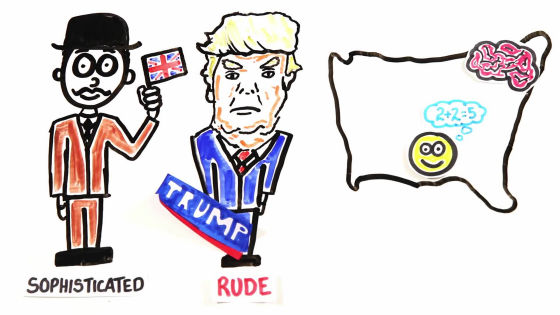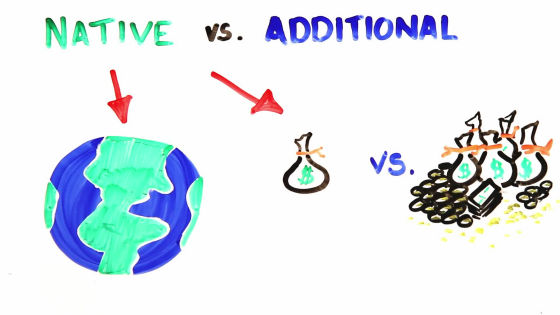How much do you communicate your information to "opponent"

ByJoe Kirschling
An accent when talking, such as a diamond or a wording, tells the opponent more than words that "that person is what". About YouTube science channel "AsapSCIENCE" explains what kind of information is transmitted to your opponent, why accents are born about native language or multilingual accents.
What Does Your Accent Say About You? - YouTube
Accent differs depending on where you are from the same word, such as pronouncing "tomato" as "tomato" or pronouncing as "tameito". It is no exaggeration to say that "How to pronounce words" explains "What kind of person is that person"?

According to a study aimed at Americans, 47% of adult Americans feel that British dressing is "refined", and 51% feel that New York Nori is "a rude fellow" about.

Also, while giving the impression that "Nice feeling" is given to the southern part of the United States, it gives the impression that "I do not have much education". On the other hand, New England 's accents with the capital Boston are said to be "intellectual". In this way, people may be biased by the pronunciation and accent of the person who is talking.

Accent is not only able to distinguish whether a language is a mother tongue when a person is talking, of course, when an opponent speaks the same mother tongue as the person, the area where the person lives And social status can be inferred.

If you speak a language that is not your native language, the story becomes more complicated. For example, when a native speaker of English learns Spanish in Spain, even if that person lived in Spain for more than ten years, Spanish becomes "English Nariari".

From the research, even if people over the age of 12 learn multilingual, it has been found that multilingual does not affect native language accent.

On the other hand, a person suddenly changes accents one day.Foreign Language Accent SyndromeIt is known that the disease is damaged in the portion of the brain where language processing is performed, and the patient becomes accent like a foreign language blurring.

Also, as an accentphonemeElement is also involved. Phoneme is the smallest unit of pronunciation words such as "ch" "sh" "th" in English. There may be cases where a specific phoneme is present depending on the language, for example, "th" used for "thing" in English does not exist in German, so a person whose native language is German is " There is a circumstance that it is difficult to pronounce "th".

The famous is pronunciation of "L" and pronunciation of "R". Because these two do not exist properly when speaking Japanese, it is said that Japanese learning English has a hard time acquiring pronunciation. In one study, I asked 32 children of the American 6 months old and 32 children of the Japanese to repeatedly pronounce "La" and "Ra", so that they both understand the difference between the two pronunciations became.

However, the same experiment was conducted for children aged 10 to 12 months old, Japanese children could not understand the difference between La and Ra. From this, it seems that brain development related to phoneme will be done around 6 months after birth.

However, regardless of age, learning multilingual has a positive impact on the brain. In a recent study on brain scanning, the brains of bilingual peoplegray matterIt is found that the density of the white matter is high and the neural circuit of the white matter is strengthened and it is also known that children raised in a multilingual family have sensitivity to language differences compared with children who do not. In addition, a multilingual-speaking family baby needs to solve problems and focus on the brainOrbital frontal cortexThat part of the reaction is stronger than other children.

Related Posts:







